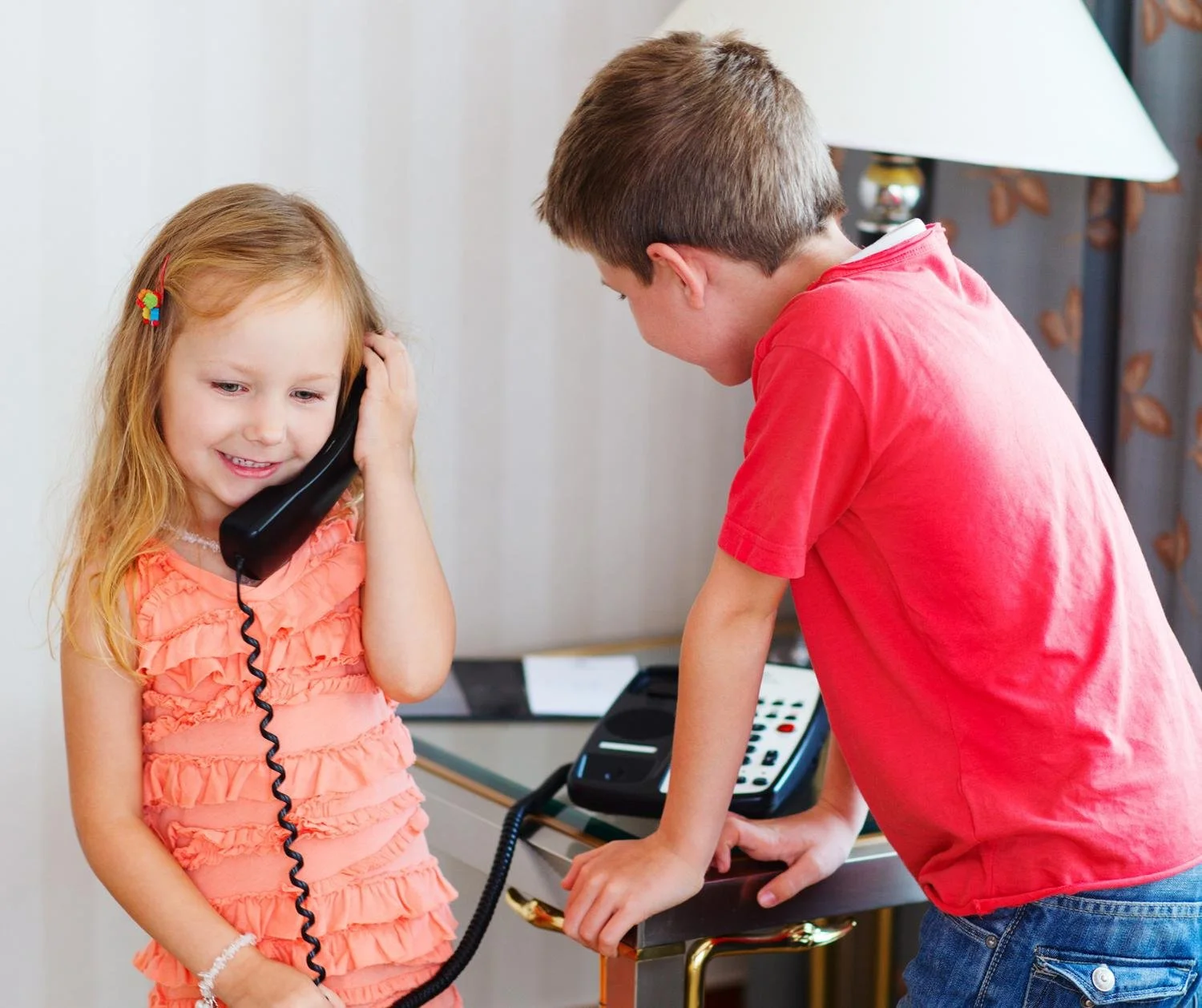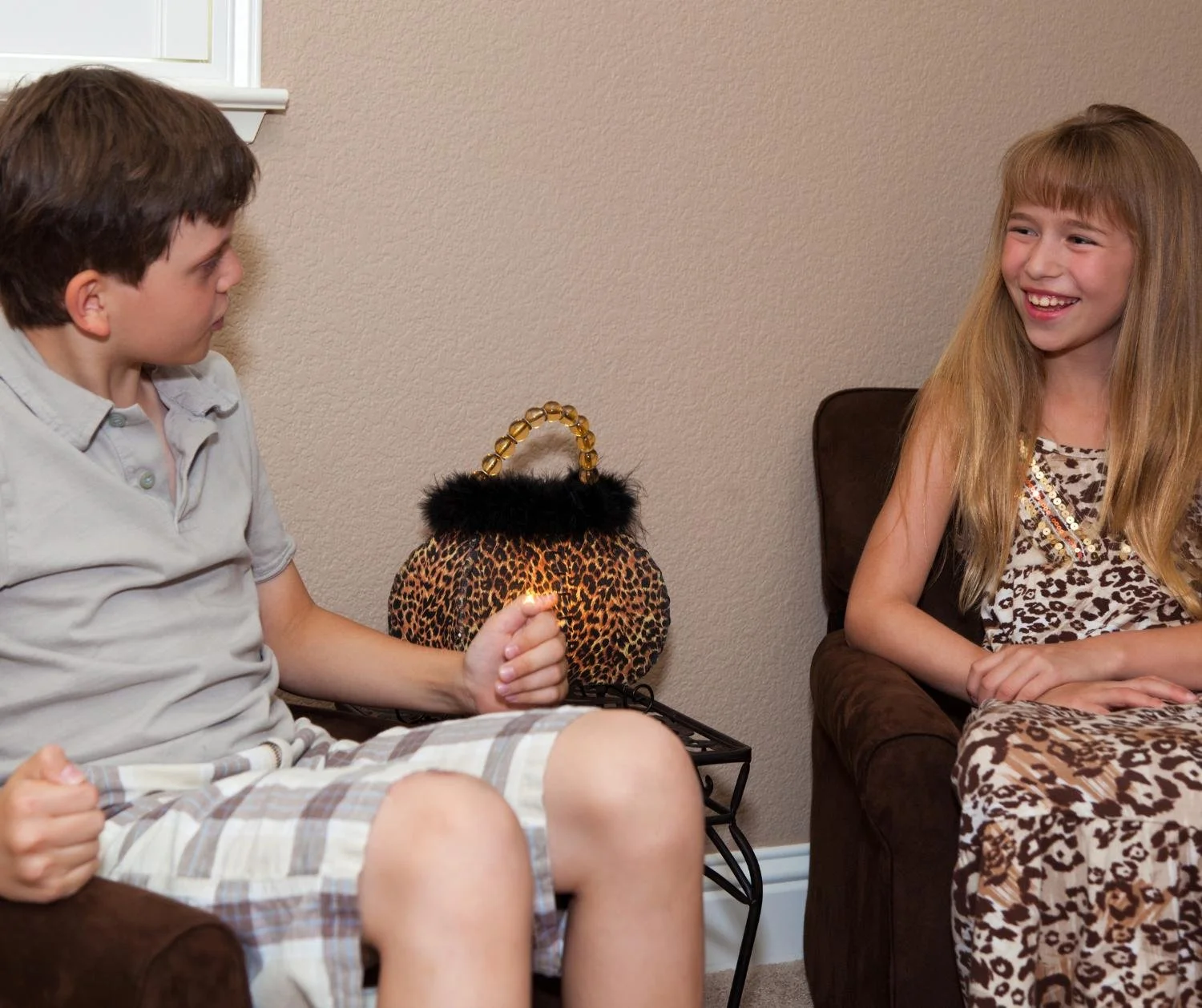The Effects of Hearing Loss on Speech and Language Development
Hearing plays a key role in early speech and language development, influencing how children engage with the world and express their needs. These processes happen naturally for children with typical hearing, but hearing loss can disrupt important developmental milestones.
Recognizing the connection between hearing loss and communication challenges can help families support children who may be struggling. Early identification and seeking professional help, such as speech therapy or audiology services, can equip families with the tools and strategies needed to help their children.
Timely intervention can significantly improve a child’s speech and language skills, setting the foundation for successful communication and learning.
Key Takeaways:
Types and Causes of Hearing Loss: Hearing loss in children can be conductive, sensorineural, or mixed and may result from genetic factors, infections, noise exposure, or illness.
Impact on Speech and Language: Hearing loss can significantly impact speech clarity, vocabulary development, sentence structure, and social-emotional skills.
Signs of Hearing Loss: Delayed speech milestones, difficulty responding to sounds, frequent ear infections, and trouble following instructions are key indicators of hearing loss in children.
Role of Speech Therapy: Speech therapy helps address challenges in articulation, spoken language comprehension, and expressive skills through auditory skill development, articulation practice, and language-building activities.
Understanding Hearing Loss in Children
How Hearing Loss Impacts Speech and Language Development
Signs of Hearing Loss in Young Children
How A Speech Language Pathologist Can Support A Child's Speech and Language Development
Frequently Asked Questions About Effects of Hearing Loss on Speech and Language Development
Understanding Hearing Loss in Children
Hearing loss occurs when there is an issue with one or more parts of the ear or the pathways that carry sound to the brain, disrupting the ability to process sounds effectively.
Hearing loss can be divided into three main types: conductive hearing loss, which involves problems in the outer or middle ear that block sound transmission; sensorineural hearing loss, caused by damage to the inner ear or auditory nerve; and mixed hearing loss, which involves a combination of conductive and sensorineural components.
Sensorineural hearing loss is the most common type of permanent hearing loss in children. It often requires specialized care due to its impact on both sound perception and the brain’s interpretation of auditory signals. Children with severe sensorineural hearing loss may require assistive technologies, such as hearing aids or cochlear implants, and intensive speech treatment to support their speech and language development.
Unlike children with normal hearing, those with hearing loss often struggle to access the full range of sounds necessary for speech and language development. This can profoundly affect their ability to build vocabulary, form sentences, and communicate effectively, potentially leading to delays or disorders.
The causes of hearing loss are varied and may include genetic factors, recurrent ear infections, exposure to loud noises, or complications from illnesses. Some children are born with hearing loss (congenital), while others develop it over time due to environmental or medical factors.
Diagnosing hearing loss involves tests performed by an audiologist, such as hearing screenings, behavioral assessments, and advanced diagnostic evaluations. Early detection, particularly for newborns and young children, is critical for initiating intervention strategies that support speech and language development.
How Hearing Loss Impacts Speech and Language Development
Hearing loss can significantly affect a child’s ability to develop speech and language skills. These challenges often extend to social and emotional development, as these areas are closely tied to hearing and communication.
Speech Development
Children with normal hearing can pick up on subtle differences in speech sounds, which allows them to mimic and produce words accurately. However, certain sounds may be unclear or missing for children with hearing loss, making it harder for them to learn and reproduce the finer details of speech sounds.
Hearing loss can make it more difficult for children to communicate clearly over time. Listening skills develop gradually and are crucial in building a child’s speech and language abilities.
Language Development
Hearing loss can significantly impact a child's success in developing language skills and may even contribute to language disorders. It can make it harder for a child to learn new words and put sentences together.
Without regularly hearing spoken language, they may struggle to develop strong listening skills, leading to difficulty learning, a smaller vocabulary, and challenges with using correct grammar or following complex directions. Delayed language development and language disorders can also affect their communication abilities and overall learning progress.
Common Cause of Speech Delay
Check out our blog on what the common cause of speech delay is for more information!
Social and Emotional Impact
Hearing loss affects more than just a child’s ability to speak and listen. Children with hearing difficulties may feel frustrated or lose confidence because they have trouble hearing and communicating with others. This can make it harder for them to make friends, leading to feelings of loneliness and sadness.
Hearing loss can also make it more difficult to do well in school, as good communication skills are needed for learning and participating in class.
Addressing hearing loss early can help children get the support they need to succeed. Children can develop the skills to grow socially, emotionally, and academically with the right therapies, assistive devices, and a supportive environment.
Signs of Hearing Loss in Young Children
Parents and caregivers should watch for these signs, which could indicate hearing difficulties and impact a child’s speech and language development:
Delayed Speech Milestones: If a child is not babbling by six months, saying simple words like “mama” or “dada” by one year, or forming two-word phrases by two years, it could mean the child is experiencing difficulty hearing.
Difficulty Responding to Sounds or Voices: Children with severe hearing loss may not turn their heads toward sounds, fail to respond to their names, or appear unaware of noises around them.
Frequent Ear Infections or Ear Discomfort: Repeated ear infections can cause temporary or permanent hearing loss. Children might also tug at their ears or complain about pain.
Challenges Following Instructions or Joining Conversations: Hearing loss can make it harder for children to understand spoken language, making it difficult to follow directions or participate in conversations.
Inconsistent Responses to Sounds: A child might respond to some sounds but not others, which could indicate difficulty hearing certain frequencies or volumes.
Speech That is Difficult to Understand: If a child’s speech is noticeably unclear or not age-appropriate, it might be due to difficulties hearing the correct sounds to replicate.
Turning Up the Volume: Frequently needing higher volumes on TVs, tablets, or other devices may indicate hearing challenges.
Behavioral Changes: Frustration, irritability, or withdrawal from social interactions may stem from difficulty understanding others or following conversations.
Fatigue or Increased Effort: Children with hearing loss may appear more tired after school or social activities due to the extra effort required to listen and understand.
Ignoring Background Noise: Difficulty hearing in noisy environments, such as crowded rooms or playgrounds, can also be a sign of hearing loss.
Recognizing these signs early allows parents and caregivers to seek help promptly. Consulting a pediatrician or audiologist ensures a timely diagnosis and access to the right support for building effective communication skills.
How A Speech Language Pathologist Can Support A Child's Speech and Language Development
Speech therapists help children with hearing loss improve their communication skills using techniques tailored to their individual needs. Language therapy is a key part of this process, focusing on building vocabulary, improving sentence structure, and teaching children to use correct grammar to express themselves clearly.
Speech therapy for children often includes activities to strengthen listening skills, essential for understanding spoken language and participating in conversations. Some children may also benefit from learning lip reading to help them interpret speech when hearing alone is not enough.
As listening skills develop, children gain the ability to follow directions, understand others, and respond appropriately, all of which significantly impact their ability to build effective communication skills.
Early identification of communication challenges gives children the best chance to succeed in developing spoken language and learning essential skills for school and social interactions.
Speech therapists, audiologists, and parents work together to support the child’s progress. Audiologists assess hearing levels and collaborate with therapists to create an individualized plan, while parents play a crucial role in reinforcing therapy techniques at home. This collaborative approach ensures consistent practice and helps children with hearing loss develop the tools they need for clear, confident communication.
Integration into Therapy Plans
Speech therapists customize therapy plans based on the child’s specific needs, focusing on developing spoken language and strengthening language skills. Assistive technologies such as hearing aids, cochlear implants, and other resources are seamlessly integrated into therapy activities to enhance language development. Tools like hearing aids allow children to access a broader range of sounds, supporting auditory skill development and making therapy more effective and comprehensive.
This integration ensures that therapy addresses both the child’s unique challenges and the capabilities of their assistive devices. Early intervention is critical to maximize the benefits of these tools, as starting speech therapy early provides children with the best opportunity to build language skills and improve spoken language comprehension and expression.
Speech therapists, audiologists, and parents work together to support the child’s progress. Audiologists assess hearing levels and collaborate with therapists to create an individualized plan, while parents play a vital role in reinforcing therapy techniques at home. This collaborative approach ensures consistent practice, helping children with hearing loss fully benefit from their therapy and develop clear, confident communication skills.
Speech Therapy for Children Quiz
Take our quiz to see if speech therapy for children can help your child.
Frequently Asked Questions About Effects of Hearing Loss on Speech and Language Development
1. How does hearing loss affect a child’s speech and language development?
Hearing loss can significantly impact a child’s ability to learn and use language. Without clear access to sounds, children may struggle with building vocabulary, forming sentences, and understanding grammar, essential components of speech and language development. Early intervention is crucial to minimize these challenges and provide the child with tools to improve communication.
2. Can hearing aids help with speech and language development?
Hearing aids play a critical role in supporting speech and language development by amplifying sounds and helping children access a fuller range of auditory input. When combined with therapy from a qualified speech-language pathologist, hearing aids can greatly enhance a child’s ability to learn and use spoken language.
3. When should parents seek early intervention for hearing loss?
Early intervention should begin as soon as hearing loss is detected. The sooner a child with hearing impairment receives support, the better their chances of achieving age-appropriate speech and language development. Early action can support a child's development.
4. What role does a speech-language pathologist play in helping children with hearing loss?
A speech-language pathologist works closely with children who have hearing loss to support their speech and language development. They create customized therapy plans, including activities to improve listening skills, build vocabulary, and enhance sentence formation. Integrating tools like hearing aids and cochlear implants into therapy helps children develop effective communication skills for everyday interactions.
5. How is deafness a barrier to communication?
Deafness affects the ability to hear and process spoken language, which is most people's primary form of communication. This can make verbal interactions, understanding complex ideas, and participating in social or professional settings more challenging.
Even with assistive devices like hearing aids or sign language, communication barriers may still arise. Miscommunication can occur due to varying levels of understanding or a lack of familiarity with sign language among peers, often making it harder for individuals with hearing loss to fully engage in mainstream conversations.
How Connected Speech Pathology Can Help with Hearing Loss
Connected Speech Pathology offers specialized support and early intervention by providing targeted speech and language therapy that addresses their unique communication challenges. Through a comprehensive assessment, our speech therapists can identify specific areas of difficulty, such as articulation, language comprehension, and expressive language skills.
Tailored therapy plans for hearing impairment are developed to improve speech clarity, vocabulary, and communication strategies. These plans help children achieve their full potential in verbal language and social interactions.
One significant benefit of Connected Speech Pathology is our ability to deliver services remotely. This approach allows children to receive high-quality therapy from the comfort of their homes, ensuring that therapy sessions are consistent and accessible regardless of location.
The remote format also provides flexibility for families, accommodating busy schedules while making sure that children continue to make progress. Over the years, Connected Speech Pathology has successfully utilized technology to engage children in meaningful therapy, with a proven track record of excellent results in improving speech and language outcomes.
Summary
Early intervention is critical for fostering a child’s speech and language development, especially when hearing loss or speech difficulties are present.
With the right combination of therapies, assistive technologies like hearing aids, and a collaborative effort between speech-language pathologists, audiologists, and parents, children can overcome communication challenges and build strong language skills. If you notice any signs of hearing loss or speech delays, seeking professional support as soon as possible can make a significant difference in your child’s success.
About the Author
Allison Geller is a communication coach, speech-language pathologist, and founder of Connected Speech Pathology, an international online practice providing professional communication coaching and speech therapy for children, teens, and adults. With more than two decades of experience, she has worked in medical and educational settings, published research on aphasia, and leads a team of specialists helping clients improve skills in public speaking, vocal presence, accent clarity, articulation, language, fluency, and interpersonal communication.










